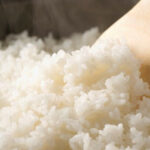Boiled eggs are a popular choice for their simplicity and convenience while retaining the egg’s natural flavor. However, not everyone knows the correct way to boil eggs to get them just right, with a soft, tasty yolk and easy-to-peel shell. So, check out the following article to learn how to boil eggs that are not only delicious but also easy to peel.
Many people tend to put eggs directly from the refrigerator into a pot of boiling water. However, this method makes it challenging to peel the eggs, and the egg whites become less soft and delicate, affecting their taste and texture. To boil eggs perfectly, you need to follow the right techniques. Check out the steps below to master the art of boiling eggs!
1. Steps to Boil Eggs Perfectly
Step 1: Adjust the Egg Temperature Before Boiling
Eggs are typically stored in the refrigerator, so they are quite cold. It is best to let them sit at room temperature for a while before boiling. Immerse them in a bowl of clean water for about 10 minutes. This helps reduce the temperature difference and prevents cracking during boiling.
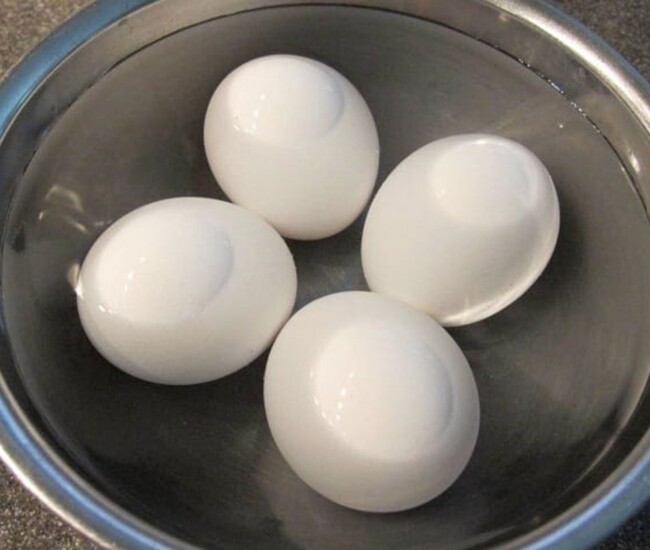
If you have just bought the eggs and they are at room temperature, you can skip this step and proceed to washing and boiling them.
Step 2: Use Cold Water Instead of Hot Water
Place the clean eggs in a pot of cold water instead of hot water. Boiling eggs in hot water can cause the shells to crack due to thermal shock, resulting in the egg whites leaking out and affecting the aesthetics and taste.
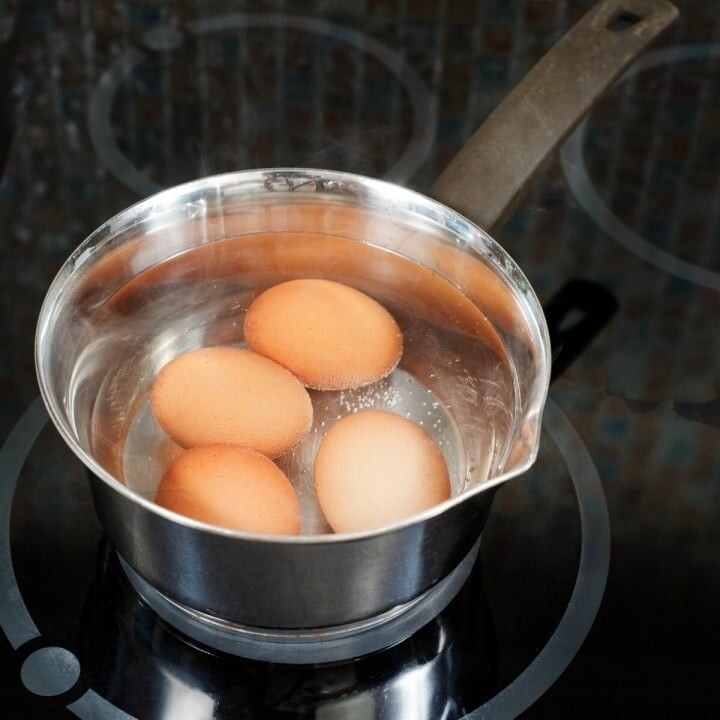
Using cold water to boil eggs not only preserves the egg’s shape but also maintains the natural structure of the protein. To prevent cracking, you can prick the eggshell with a needle to create a small hole for air escape or add a slice of lemon to the pot.
Step 3: Add Salt and White Vinegar
Once the water starts boiling, add a pinch of salt and some white vinegar. These ingredients help soften the calcium layer on the shell, making it easier to peel. This step also helps prevent cracking during the boiling process.
Step 4: Ideal Boiling Time
To ensure the eggs are thoroughly cooked, boil them for 8 to 10 minutes. This duration is sufficient to kill any salmonella bacteria, ensuring food safety.
Boiling for a shorter time may result in undercooked yolks, making it difficult for your body to absorb all the nutrients.
Avoid overboiling, as it can turn the yolks gray and crumbly, and the whites tough and rubbery.
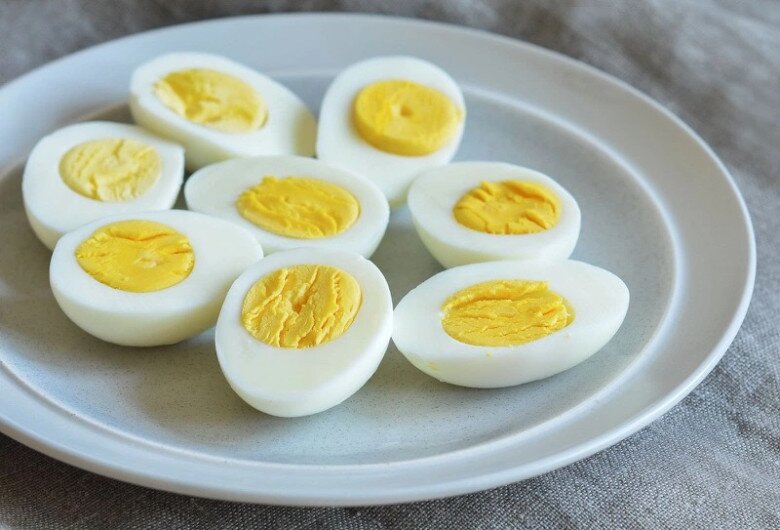
2. Important Notes When Boiling Eggs
– Avoid overcooking the eggs to maintain protein quality and ensure optimal health benefits.
– For soft-boiled eggs with runny yolks, reduce the boiling time to 6-7 minutes, depending on your desired level of doneness. With these simple tips, you can easily prepare boiled eggs that are not only delicious but also aesthetically pleasing.
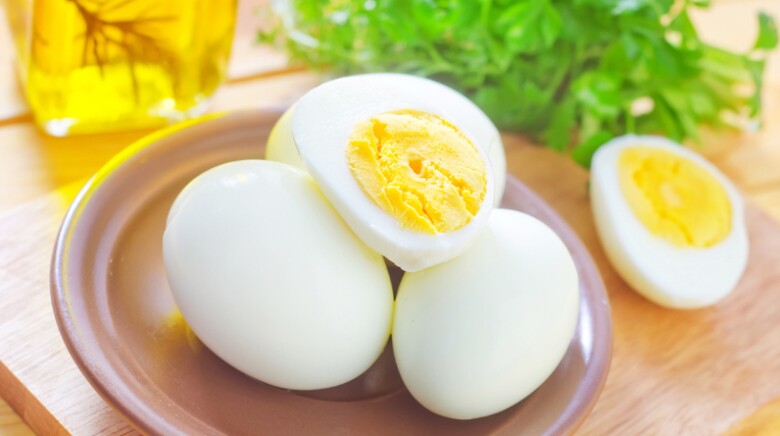
Happy boiling, and enjoy your perfectly boiled eggs!
The Ultimate Guide to Unlocking the Secrets of Crab and Crayfish Broth: Why Your Choice of Water Matters for a Delicious Dish
Many people wonder why their steamed crab and crayfish often turn out bland, with limbs falling off and a fishy taste that makes for an unpleasant dining experience. Top chefs assert that this is due to the incorrect use of steaming liquid, which plays a pivotal role in determining the outcome of your dish.




























